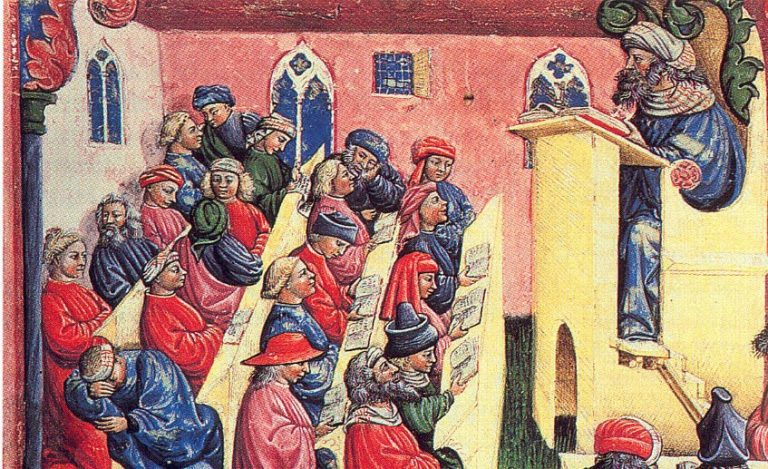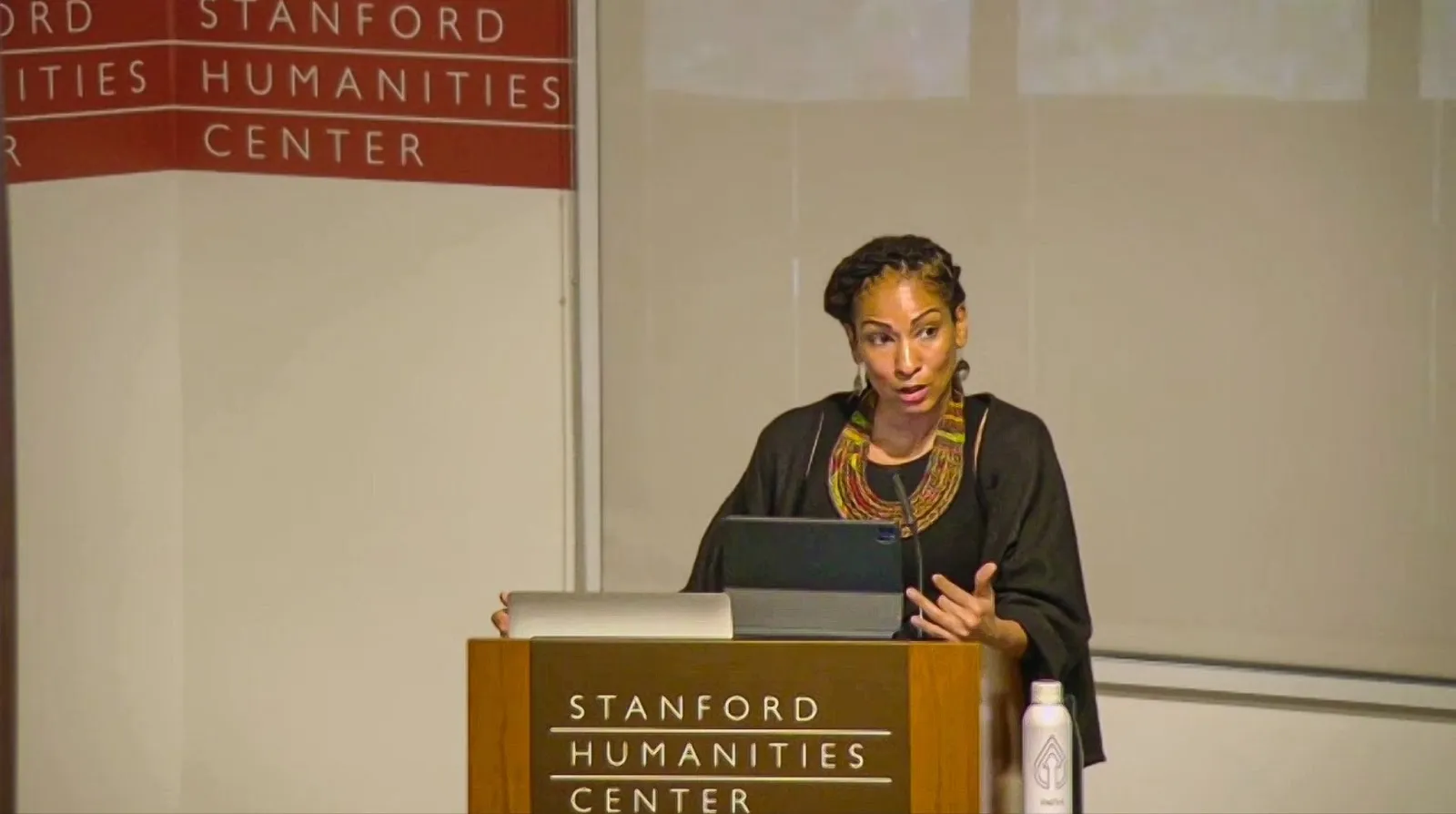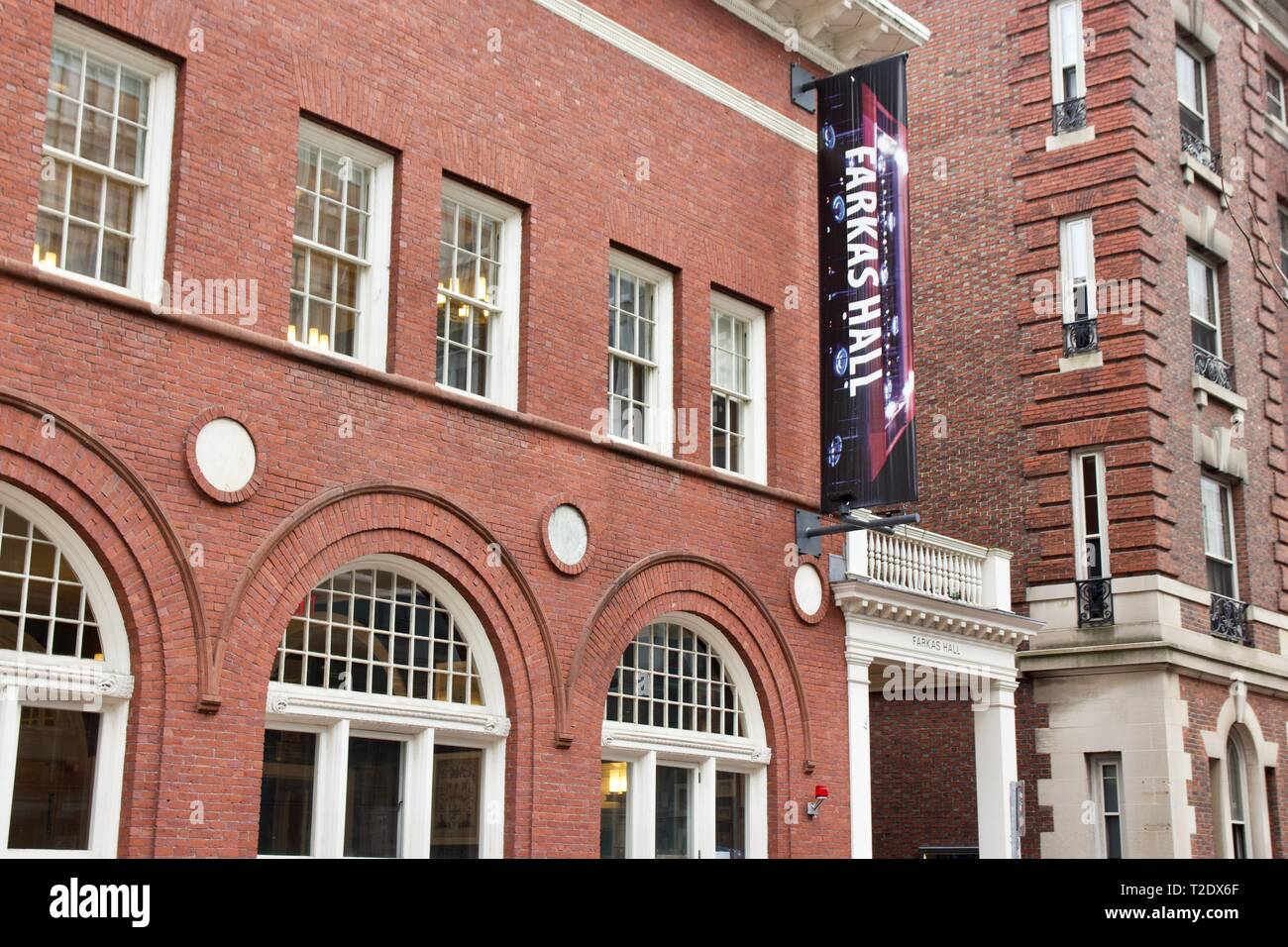The medieval studies conference held at Harvard is a landmark event that has drawn interest from scholars worldwide. As the Medieval Academy of America celebrates its 100th annual meeting, this conference promises to be a vibrant gathering for those engaged in historical scholarship across various disciplines. With over 800 academics from 23 countries participating, attendees will explore an exciting range of topics that reflect both traditional and contemporary views of the global Middle Ages. The rich tapestry of interdisciplinary medievalism on display showcases the evolution of medieval studies over the past century, highlighting its relevance in today’s academic discourse. From workshops to plenary talks, this conference is an outstanding opportunity for participants to connect, collaborate, and contribute to the ongoing dialogue within the field.
The recent gathering dedicated to the study of the medieval period represents a significant venue for scholars and enthusiasts alike. Known for its comprehensive engagement with historical eras, this medieval forum serves as a critical junction for the analysis and discourse surrounding medieval cultural, social, and economic phenomena. Many researchers are eager to share insights about the global contexts of the Middle Ages, demonstrating how interconnected societies shaped the fabric of medieval life. This remarkable event not only fosters academic collaboration but also aims to inspire new scholarship that can resonate beyond mere historical narratives. As the global interest in medieval themes continues to grow, such conferences play a crucial role in revitalizing the conversations and methodologies that drive the field forward.
Celebrating a Century of Medieval Studies
The recent gathering of the Medieval Academy of America at Harvard marks a significant milestone, celebrating 100 years of scholarly achievements in the field of medieval studies. Over the centuries, the academy has been a cornerstone for historians, literary scholars, and academics from various disciplines, facilitating dialogue around the cultural, social, and political landscapes of the medieval period. With the participation of 800 scholars from around the globe, this event underscores the academy’s role in fostering interdisciplinary collaboration, critical reflection, and innovative research that continues to shape historical scholarship.
At the heart of the conference were discussions that intertwined medieval studies with contemporary issues, reflecting the enduring relevance of medieval texts in today’s world. As showcased by presenters like Fernanda García-Oteyza and her parallels between Chaucer and modern literary critiques, the conference highlighted how the essence of medieval literature resonates even in our digital age. Participants were able to examine the evolution of the field, celebrating its past while also pondering its future trajectory, especially as it adapts to changes in academic paradigms and global interactions.
Global Perspectives in Medieval Studies
This year’s conference showcased a diverse range of perspectives from the Global Middle Ages, reinforcing the idea that medieval studies extends far beyond the familiar narratives centered on Europe. The inclusion of presentations on medieval trade in Venice, as well as topics from Africa and East Asia, illustrates the expanding geographical focus that scholars are adopting. Such discussions not only enrich our understanding of medieval interactions across cultures but also encourage a more comprehensive view of historical scholarship that transcends traditional boundaries.
By emphasizing a global scope, the Medieval Academy of America signals an evolving scholarly landscape that recognizes the interconnectedness of various civilizations during the medieval period. Workshops focused on teaching approaches further elaborated on this global outlook, prompting graduate students and academics at all levels to think critically about how they approach medieval texts and cultural artifacts. The commitment to interdisciplinary medievalism reflects the academy’s goal of transforming how we perceive the Middle Ages, presenting it as a dynamic epoch filled with varied influences and interactions.
Interdisciplinary Approaches to Medieval Scholarship
Interdisciplinary collaboration was a prominent theme throughout the medieval studies conference, inviting scholars from fields such as literature, history, and cultural studies to engage in rich dialogues about their research. The integration of different disciplinary perspectives enhances the exploration of medieval topics, allowing for a more nuanced understanding of the influential factors during that era. The presence of scholars from various academic backgrounds fosters innovation in methodological approaches, encouraging creativity in how medieval themes can be examined and understood.
For instance, presentations addressing the resurgence of historical practices, such as the revival of the Óenach Tailteann in Ireland, illustrate how diverse academic insights can illuminate lesser-known aspects of medieval life. By bringing together voices from literature, history, and beyond, the conference encourages participants to reflect on the interconnectedness of different scholarly traditions. This collaborative spirit not only enriches discussions but also fuels the growth of knowledge by fostering relationships among scholars who are keen to explore the medieval world from multiple angles.
The Role of Technology in Medieval Studies Today
In an era characterized by rapid technological advancements, discussions at the medieval studies conference have highlighted how digital tools are reshaping research paradigms. Through the use of databases, digital archiving, and online collaborative platforms, scholars now have unprecedented access to primary sources, making it easier to explore the complexities of the Middle Ages. This technological shift aligns with themes discussed during the conference, particularly in relation to the nuances of textual analysis and the preservation of medieval literature.
Furthermore, the dialogue about technology underscores a growing awareness of how digital mediums can enhance public engagement with medieval studies. By expanding outreach through webinars and online repositories of medieval texts, scholars are poised to attract a broader audience, fostering greater interest in this field of study. The intersection of technology and medieval studies serves as a testament to the adaptability of the discipline, ensuring that medieval scholarship remains vibrant and accessible in an increasingly digitized world.
Reflections on the Past: 100 Years of the Medieval Academy
As attendees at the Medieval Academy of America reflected on its century-long history, there was an air of nostalgia and pride in how far the field has come. The academy has played a pivotal role in consolidating the study of the Middle Ages, providing resources and networks essential for scholarly development. By commemorating past achievements, participants reaffirm the importance of learning from historical contexts to inform current and future scholarship.
Moreover, the centennial celebration serves as a clarion call for a critical examination of disciplinary practices and ideals. Scholars like Sean Gilsdorf articulated the need for a forward-thinking approach, intertwining retrospective analyses with visions for future research paths. As medieval studies evolve, embracing both new methodologies and interdisciplinary angles remains paramount, ensuring that the field continues to thrive and adapt to contemporary academic landscapes.
The Intersection of Medieval Literature and Contemporary Issues
One of the most striking features of this year’s conference was the exploration of how medieval literature can engage with contemporary social issues. Presenters like Fernanda García-Oteyza brought to light the uncanny parallels between the concerns of figures like Geoffrey Chaucer and modern storytellers grappling with themes of truth and misinformation. This intersection sheds light on the timelessness of literary exploration, demonstrating how medieval texts can resonate with today’s audience.
Such discussions reflect a broader trend in historical scholarship where the relevance of the past is increasingly emphasized in light of current global challenges. Through re-examinations of medieval works, scholars can extract lessons on how narratives shape cultural discourse, ultimately enriching both medieval studies and contemporary literary critique. Engaging with these texts in innovative ways continues to spark conversations that bridge historical periods, revealing the interconnected experiences of humanity throughout time.
Engaging the Next Generation of Medieval Scholars
Fostering interest in medieval studies among younger scholars is vital for the future of the field, and this year’s conference made significant strides in doing just that. By offering workshops and networking opportunities tailored to graduate students, the Medieval Academy encourages a new generation of researchers to explore diverse facets of the medieval world. Junior scholars have the chance to connect with established academics, share their work, and gain insights that will inform their scholarly careers.
Moreover, the emphasis on global perspectives and interdisciplinary exchange within the conference serves to inspire graduate students to think creatively about their research. The incorporation of broader cultural contexts into medieval studies not only enriches their understanding of the subject matter but also empowers them to contribute unique insights to ongoing scholarly debates. By engaging the next generation in vibrant discussions, the academy helps ensure that the field of medieval studies remains dynamic and forward-looking.
Networking Opportunities at the Medieval Studies Conference
The medieval studies conference serves as a prime venue for networking among academics, a critical component of scholarly development. Scholars from various disciplines convene to share ideas, explore potential collaborations, and discuss advancements in research methodologies. For many attendees, the conference represents a rare opportunity to engage with peers and mentors in an environment that fosters intellectual exchange and community.
These networking experiences are pivotal for nurturing relationships that support academic growth and collaboration beyond the conference itself. Participants can connect over shared interests, paving the way for future projects that may cross disciplinary boundaries. The emphasis on fostering such relationships is essential in a field that thrives on dialogue and communal scholarship, solidifying the medieval studies conference as an indispensable event for all participants.
Innovations in Teaching Medieval Studies
Innovations in the teaching of medieval studies were prominently featured throughout the conference, particularly through workshops that introduced educators to new pedagogical strategies. Discussions focused on tools for incorporating global perspectives into the curriculum, allowing educators to approach medieval texts from a more inclusive standpoint. This shift in teaching methodology is indicative of a broader trend towards internationalization in academia, recognizing the importance of diverse voices in understanding the medieval experience.
By encouraging educators to rethink traditional narratives, these workshops aim to equip faculty with the resources needed to engage students meaningfully. The result fosters a richer educational environment where students can appreciate the complexity of the medieval world and its lasting impact on contemporary culture. As mentors continue to evolve their teaching strategies, students benefit from a more holistic approach that prepares them for future scholarship.
Frequently Asked Questions
What is the Medieval Academy of America and its significance for medieval studies conferences?
The Medieval Academy of America, established in the early 1920s, is a key organization dedicated to the advancement of medieval studies. Its annual conferences, like the recent 100th meeting at Harvard, gather scholars from various disciplines to explore historical scholarship and celebrate the evolving field of medieval studies.
How does the Medieval Academy of America promote interdisciplinary medievalism?
The Medieval Academy of America encourages interdisciplinary medievalism by hosting conferences that feature a wide range of topics, from medieval trade to global perspectives of the Middle Ages. This approach enriches discussions and fosters collaboration between different academic fields.
What themes are addressed at the medieval studies conference?
Themes at the medieval studies conferences often include global middle ages, historical scholarship, and the impact of medieval literature. Scholars engage in discussions about the relevance of medieval studies in today’s world, exploring connections between historical texts and contemporary issues.
How can undergraduate students benefit from attending a medieval studies conference?
Undergraduate students can benefit significantly from attending a medieval studies conference like the one hosted by the Medieval Academy of America by networking with established scholars, gaining insights into current research trends, and participating in workshops that enhance their academic skills.
What is the role of workshops in the medieval studies conference?
Workshops at the medieval studies conference, such as those organized on teaching the Global Middle Ages, play a crucial role in providing practical training for scholars and educators. They focus on innovative teaching methods and strategies to engage students with interdisciplinary medieval studies.
Why is Harvard a significant location for the medieval studies conference?
Harvard is a significant location for the medieval studies conference because it has a long-standing tradition in medieval scholarship, with its Committee on Medieval Studies promoting research and education in this field. The university’s rich resources and academic community enhance the conference experience.
What types of presentations can attendees expect at the medieval studies conference?
Attendees at the medieval studies conference can expect a variety of presentations including plenary addresses, individual scholarly papers, and panel discussions that cover a broad range of topics related to the medieval world, including literature, history, and cultural studies.
How does participation in a medieval studies conference impact scholarly research?
Participation in a medieval studies conference greatly impacts scholarly research by facilitating knowledge exchange, fostering collaborative projects, and providing inspiration through exposure to diverse research findings and methodologies in the realm of medieval studies.
What resources are available for graduate students during the medieval studies conference?
Graduate students attending the medieval studies conference have access to a wealth of resources, including mentorship opportunities, networking with established scholars, workshops designed to enhance their research and teaching capabilities, and exposure to the latest advancements in historical scholarship.
What are some recent topics discussed at medieval studies conferences?
Recent topics discussed at medieval studies conferences have included issues such as medieval trade agreements, the representation of the Global Middle Ages, and contemporary interpretations of classic texts like ‘Beowulf.’ These topics reflect the diverse and interdisciplinary nature of current medieval studies.
| Key Point | Details |
|---|---|
| Historical Context | The Medieval Academy of America’s annual meeting celebrates 100 years since its founding in the early 1920s. |
| Conference Highlights | Over 800 academics from 23 countries gathered for workshops, presentations, and discussions. |
| Interdisciplinary Focus | Presentations included topics on medieval trade agreements, cultural exchanges, and literary analyses, reflecting the field’s global scope. |
| Engagement and Networking | Participants emphasized the importance of face-to-face interaction in fostering scholarship and collaboration. |
| Future Perspectives | The conference encouraged discussions on the evolution and future direction of medieval studies. |
Summary
The medieval studies conference has once again highlighted its significant role in advancing the field by providing a platform for over 800 scholars to engage in deep discussions about medieval history, culture, and literature. With an impressive array of presentations and workshops, the event has proven that medieval studies are not only vibrant but also evolving, reflecting global perspectives and interdisciplinary approaches. The ongoing dialogue about how these studies can shape our understanding of the past sets a foundation for future scholarly endeavors in the upcoming century.



